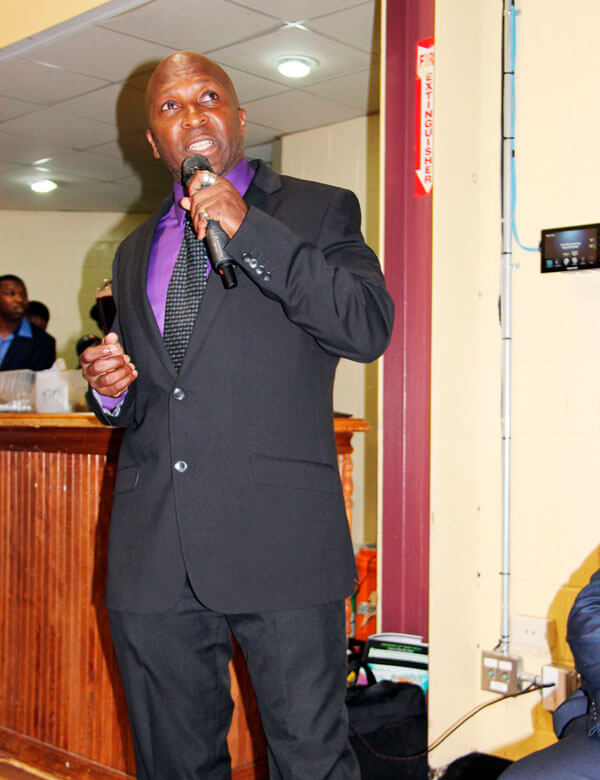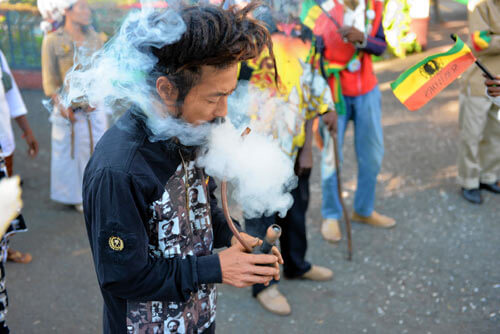Noting that “a clarion call” for acceptance of the marijuana plant is gaining steam globally, a Boston-based Vincentian attorney, who practices law in Connecticut, is urging his compatriots to fully address “this growing phenomenon.”
In delivering the keynote address Saturday night, at the inaugural Awards Ceremony of the Friends of Sion Hill, at the Friends of Crown Heights Educational Center in Brooklyn, Dr. Eversley A. Linley said St. Vincent and the Grenadines is “directly positioned in the path of this imminent wave of change.”
Referring to the International Narcotics Control Board (INCB) 2014 data, Linley, who holds a Ph. D in Political Science from the University of Idaho, said that “St. Vincent and the Grenadines is one of the main producers and distributers of marijuana in the Caribbean region.”
“It is blessed with an ideal climate and soil that provide the perfect environment for a high quality organic ‘cash crop,’” he said. “Ignoring this fact only conjures up the notion of denial, of a well-oiled, ‘black market’ infrastructural network.”
Linley, who focuses on International Law and Regional and Civic Planning, said drastic changes are sometimes “necessary and occasionally unavoidable,” adding that this occurrence is commonly associated with a “paradigm shift.”
He said, “this growing movement, that is breaking new ground towards cultural and social acceptance, must no longer be overlooked,” stating that “marijuana is embedded in cultures at all levels across the globe.”
“Decades of disassociation with the plant, crafted through the shrill lens of taboos and economic propaganda, are gradually becoming extinct,” said Linley, who is still St. Vincent and the Grenadines’ national record holder in the 800 meters in both the indoors and outdoors event. He is also a native of Sion Hill, a village renowned for its athletic prowess, overlooking capital city Kingstown.
Throughout the course of his athletic career, Linley represented St. Vincent and the Grenadines in the 1988, 1992 and 1996 Olympics. In 1988, the former St. Martin’s Secondary and St. Vincent and the Grenadines Grammar School student was granted an athletic scholarship to the University of Idaho, where he obtained Bachelor’s and Master’s of Science degrees in Regional Development and Planning, and a Ph. D in Political Science, with emphasis on Public Administration and Regional Development and Planning.
Dr. Linley noted that the current affinity with marijuana is driven by a three-prong criteria: Pleasure and recreation; financial and economic viability; and pharmaceutical and medicinal use.
He said “change is coming,” regarding societal acceptance of marijuana in St. Vincent and the Grenadines, adding that the future of the land, otherwise known as “Hairouna, lay at the forefront of this shifting culture.”
In order to respond to this “change,” Linley urged Vincentians, from all walks of life, to “coalesce and engage in civic and constructive dialogue.
“Failure to do so could produce irreversible unknown, unforeseen and / or unintended consequences,” he warned. “Therefore, it is critical to consider the arguments presented on both sides of the spectrum, irrespective of one’s point of view.”
Hence, he called for “all hands on deck” to “promote, insightful discussion.”
But Linley said any engagement in civil discourse should encompass a “unified front,” stating: “We must strive to put aside argumentative obstruction and act in the spirit of good faith.”
At the same time, the political scientist and lawyer said aligning any new policy to current trends must consider the impact to local, regional and international affiliations, such as the Caribbean Community (CARICOM), the United Nations, the International Monitory Fund (IMF) and the World Bank.
He urged Vincentians to be “proactive with this topic” and take the lead in regional discussions, stating, “there is no reason and no excuse not to.”
























